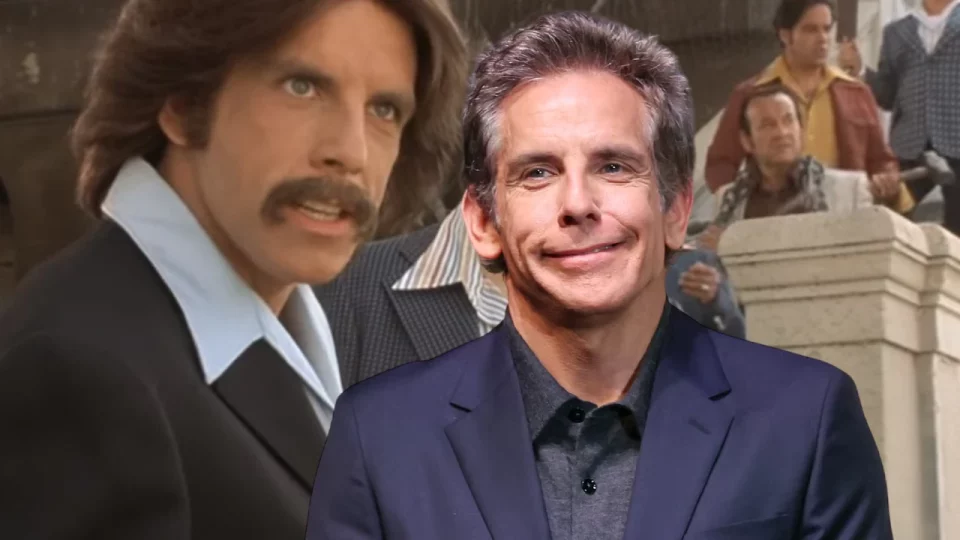Ben Stiller has recently revisited one of the most controversial aspects of his 2008 satirical comedy Tropic Thunder: Robert Downey Jr.’s portrayal of Kirk Lazarus, a method actor who undergoes “pigmentation alteration” surgery to play a Black character.
While the film was widely acclaimed for its biting critique of Hollywood’s excesses and tropes, its humor remains a hot topic in today’s cultural climate.
Stiller’s reflections, alongside comments from Downey Jr., provide a fascinating lens into the evolution of comedy, cultural sensitivity, and the challenges of balancing satire with contemporary social norms.
Table of Contents
The Legacy of Tropic Thunder: A Satire Ahead of Its Time
When Tropic Thunder premiered in 2008, it was celebrated for its bold, self-aware humor. Directed by Ben Stiller, who also starred in the film, it lampooned Hollywood’s obsession with awards, method acting, and industry absurdities. However, one of its most debated elements was Downey Jr.’s character Kirk Lazarus, a self-serious Australian actor who controversially dons blackface as part of his method-acting commitment.
Stiller, reflecting on the film in an interview with Collider, acknowledged the challenges of creating edgy comedy in today’s cultural landscape. He admitted, “Even at the time, we were fortunate to get it made… It’s a very inside movie when you think about it.” The director credited Steven Spielberg and DreamWorks for backing the film, but he conceded that such a project would face significant hurdles in 2024.
The controversy surrounding Lazarus’s character highlights a broader discussion about comedy’s role in addressing sensitive topics. Stiller explained, “The only reason we attempted it was I felt like the joke was very clear in terms of who that joke was on — actors trying to do anything to win awards.” However, he admitted that if given the chance today, he might not have taken the risk, stating, “In this environment, I don’t even know if I would have ventured to do it.”
Robert Downey Jr. Defends the Role: “A Railing Against Tropes”
Robert Downey Jr., whose performance as Lazarus earned him an Academy Award nomination, has also weighed in on the ongoing discourse. Speaking on the Literally! With Rob Lowe podcast, Downey Jr. defended his role, emphasizing the satirical intent behind the character.
“The spirit that [Stiller] directed and cast and shot Tropic Thunder in was, essentially, as a railing against all of these tropes that are not right and [that] had been perpetuated for too long,” the actor explained.
According to Downey Jr., the film was meant to critique, not perpetuate, problematic Hollywood practices.
Yet, Downey Jr. acknowledged that societal perceptions have shifted significantly in the years since the film’s release. He noted, “There used to be an understanding with an audience… things have gotten very muddied.” His comments reflect the tension between artistic intent and evolving cultural awareness. While Tropic Thunder sought to expose and ridicule Hollywood’s excesses, its use of blackface — even within the context of satire — is increasingly seen as controversial.
The Changing Landscape of Comedy: Can Edginess Survive?
The challenges faced by Tropic Thunder in retrospect illustrate a broader shift in the comedy genre. In recent years, comedians and filmmakers have grappled with questions about where to draw the line between humor and offense. Stiller’s acknowledgment that “edgier comedy is just harder to do” underscores this reality.
Satire has always relied on pushing boundaries to provoke thought and challenge norms. However, in an era of heightened awareness about representation and cultural appropriation, the risks associated with such humor have grown. Stiller’s comments reveal an awareness of these risks, as he expressed uncertainty about whether a film like Tropic Thunder could be made today.
This shift in comedic norms is not without its critics. Some argue that comedy should remain a space for challenging societal taboos and sparking difficult conversations. Others, however, believe that comedians and filmmakers have a responsibility to adapt to changing cultural standards and avoid reinforcing harmful stereotypes.
Challenges for Edgy Comedy in Today’s World:
- Increased Accountability: Social media has amplified the voices of marginalized communities, making it easier to hold creators accountable for problematic content.
- Evolving Standards: Jokes that were once considered acceptable are now viewed through a more critical lens, forcing creators to reevaluate their material.
- Blurred Intentions: Satirical works are often misinterpreted, with audiences sometimes mistaking the critique for endorsement of the behavior being mocked.
Satire’s Role in Navigating Cultural Sensitivity
Despite the challenges, satire remains a powerful tool for addressing societal issues. Films like Tropic Thunder provoke discussions about complex topics such as race, privilege, and the absurdity of Hollywood’s vanity. However, the film’s reliance on blackface as a satirical device remains a contentious point.
Stiller’s reflection that the joke was “on actors trying to do anything to win awards” highlights the intended target of the humor. Yet, critics argue that the use of blackface, regardless of intent, can perpetuate harmful historical stereotypes. This tension underscores the difficulty of creating satire that is both effective and sensitive.
Some filmmakers and comedians have found ways to navigate this delicate balance. By centering the perspectives of marginalized communities and involving them in the creative process, creators can produce work that is both provocative and respectful. Stiller’s candid acknowledgment of the film’s risks suggests a growing awareness of the importance of this approach.
